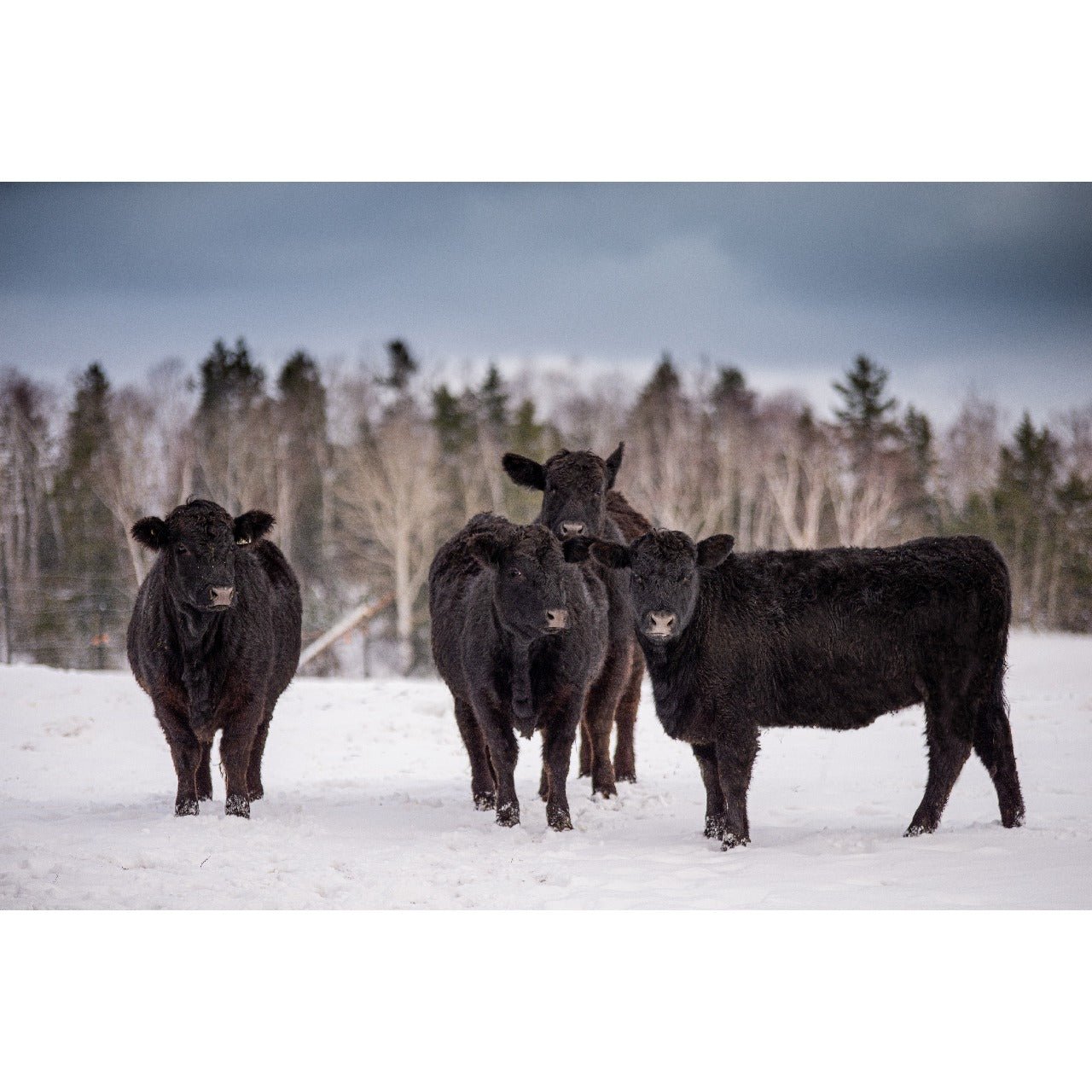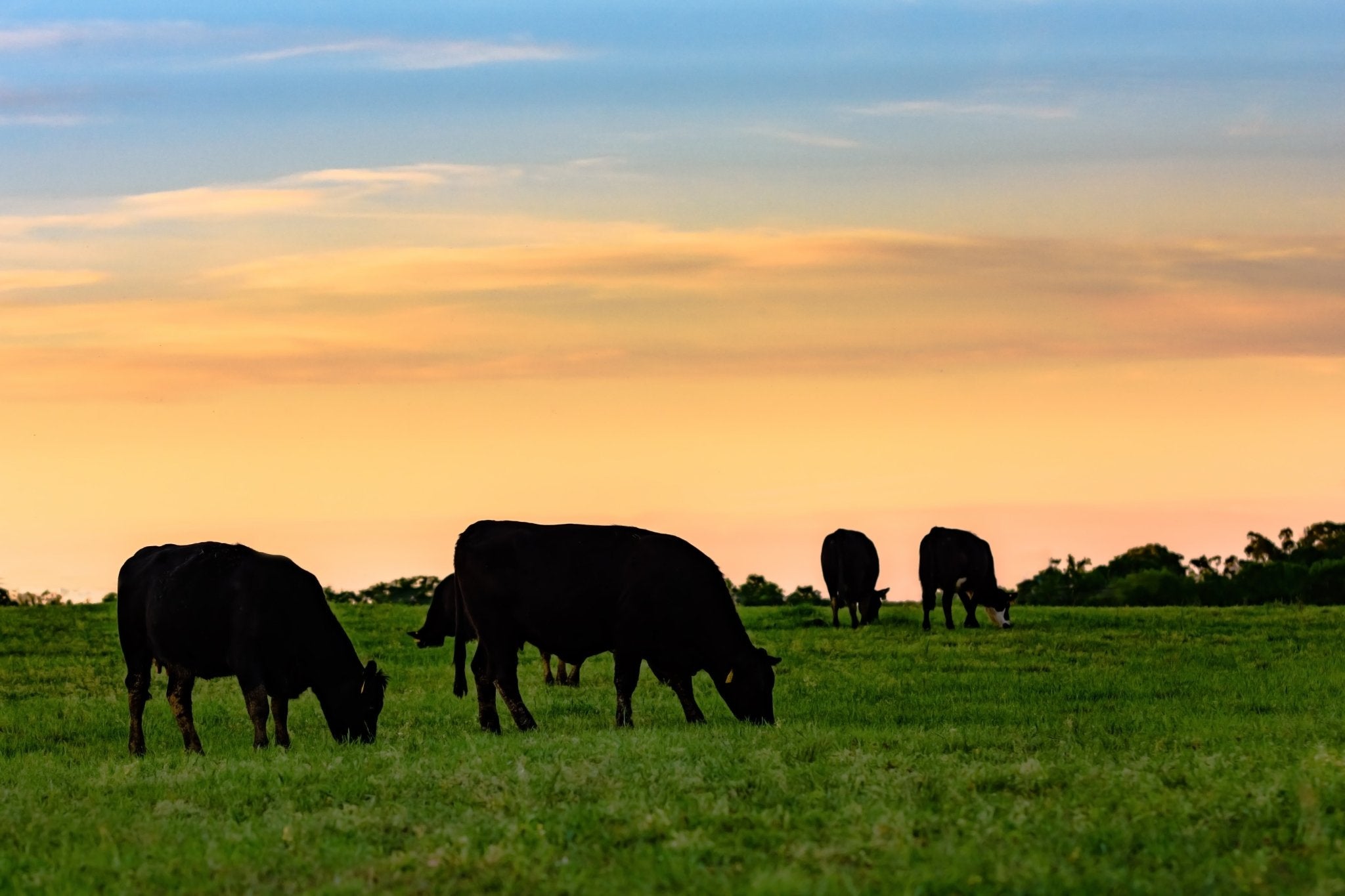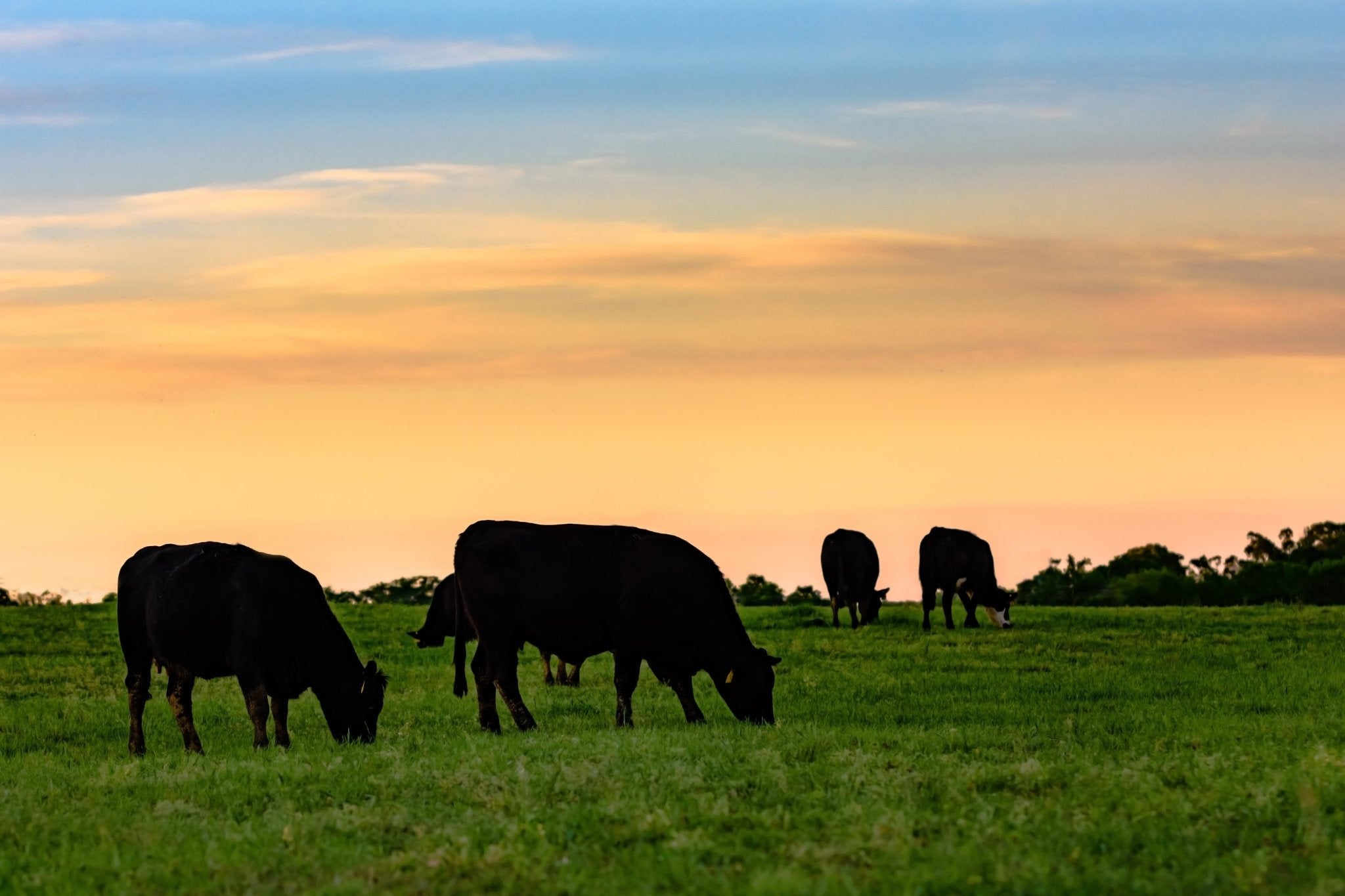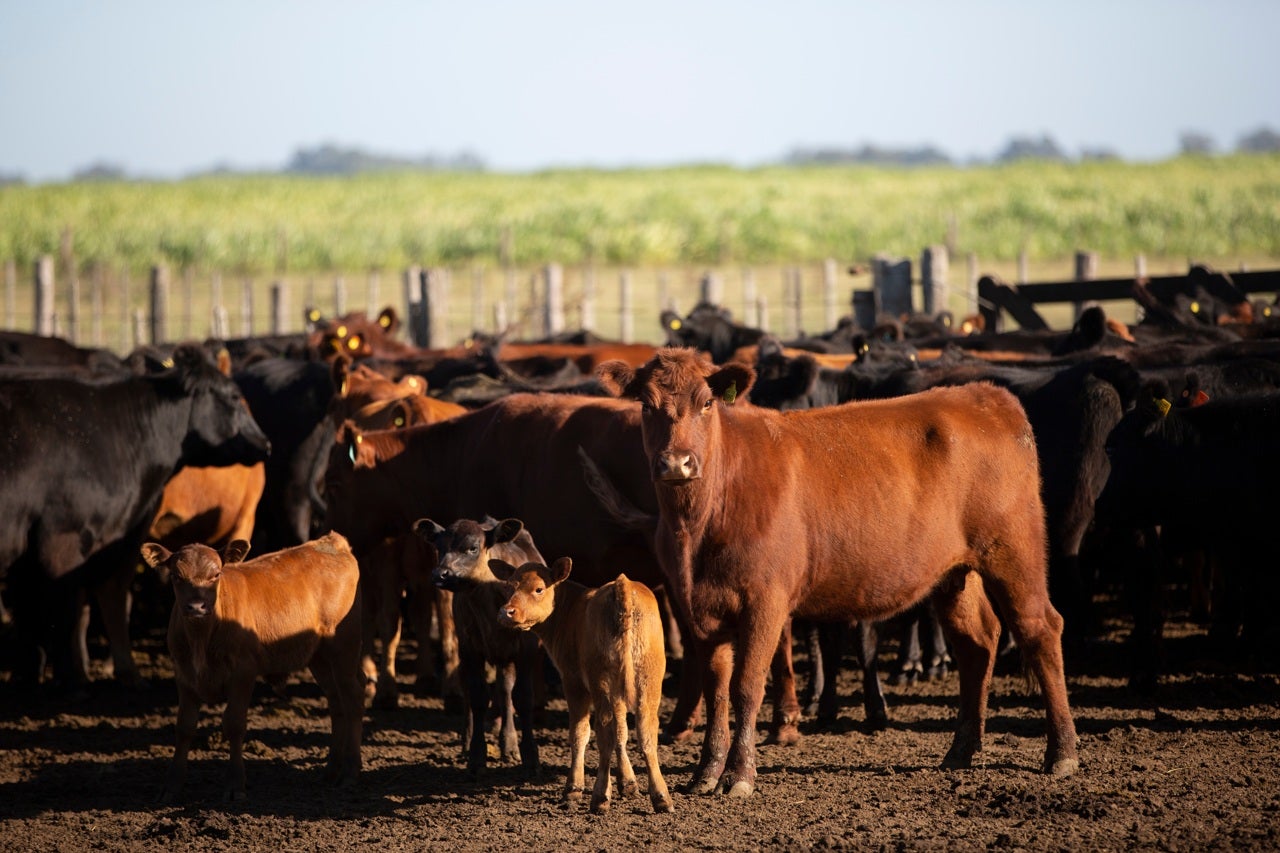The Benefits of Locally Grown Beef and The Downfalls of Beef Export Culture

As the demand for beef rises, so does the gap between ethical farming practices and the cuts of beef that find their way into our stores and, ultimately, our kitchens. Not all meat is created equal, and the beef from organic grass-fed cattle ranches is entirely different from conventionally raised cattle.
It's worth noting that while red meat is often portrayed as the stressor in our diets when buying locally farmed cuts of beef, you are supporting the environment and your health.
Below, we explore the top three reasons for buying locally grown beef and why you should make the switch from supermarket beef to farm-to-table meat.
1) Grass-Fed Organic Beef Is a Nutrient Powerhouse
Grass-fed and organically raised beef contain a far higher number of Omega-3 fatty acids than conventionally farmed beef raised in feedlots. Omega-3s are an essential nutrient that protects heart cells and other cells in the body from developing the effects of stress and inflammation. Omega 3s also aid in the prevention of developing high blood pressure and other heart conditions.
A specific fat conjugated linoleic acid, or CLA, is present in high quantities in grass-fed beef that has been shown to reduce the risk of cancer. A study conducted on women who were given high amounts of CLA-rich foods had roughly a 60% lower risk of breast cancer than those who had little to no CLA in their diet.
2) Organic Grass-Fed Beef Has Fewer Calories
Because of a clean, natural, and nutritious diet, the cuts of beef that come from organic and grass-fed cows are less calorie-dense than traditionally farmed beef. In addition to potential weight loss and weight management benefits, locally raised beef can also help balance blood sugar levels, which is crucial to a healthy and balanced diet. People who consume grass-fed beef have been shown to demonstrate better insulin sensitivity, which can help prevent diabetes and reduce the risk of obesity.
3) Know the Quality of Food That Is on Your Table
One of the most important benefits of buying locally and organically raised grass-fed beef is the quality of the cuts of beef, from the farming practices to the environmental impact. Knowing where your food comes from and how it was grown can help you source healthy and nutritious foods while supporting sustainable agricultural businesses.
You may be wondering why recently there has been such heavy emphasis placed on purchasing your cuts of beef from local grass-fed farms when there is such an ample supply of meat labeled as grass-fed already in your local supermarkets.
The answer lies in the leading beef exporters' unethical practices to provide consumers with beef at a reasonable cost. From deforestation to greenhouse emissions and contamination, the beef industry leaders continue to increase their beef production at the expense of the wellbeing of the animals, the environment, and ultimately, consumers.
Brazilian Beef- The Leading Cause of Deforestation
Brazil is one of the world's top beef exporters, and its beef farming industry continues to grow rapidly. The export beef market is expected to grow an additional 35% in the next couple of decades. This rising demand for beef puts insurmountable pressure on farmers to produce affordable meat at rapid speed. The cost of this growing demand is paid by the world's lungs, the Amazon rainforest, where the deforestation rates rise significantly due to the expansion of cattle ranching.
Some of Brazil's biggest cattle ranching companies have been directly linked to more than 42,000 acres of illegal deforestation in the Amazon, making Brazilian beef not only unethical to purchase but also harmful to the environment.
As consumers grow more conscious of the conditions in which their food is grown and what lasting effects its production leaves on the planet, many are searching for more sustainable and ethical alternatives, such as free-range cattle as advertised by many Australian beef producers.
What lies on the other side of this seemingly more environmentally-friendly source of beef may surprise you. While Australian grass-fed beef paints a beautiful picture of cows grazing in green fields, this vision couldn't be further from the truth.
Australian Grass-Fed Beef Is a Myth
While Australian cattle ranchers and export companies have painted a sustainable and ethical picture of pasture grazing cows, the truth is, majority of animal farms in Australia spend at least a portion of their lives on intensive farms, where large numbers of animals are kept in small enclosed areas, creating a breeding ground for disease and waste.
Before we explore the somewhat ironic nature of Australia's grass-fed beef, we'll touch quickly on the environmental impact of Australian beef farming. Agriculture emissions represent 16% of Australia's National Greenhouse Gas Inventory, of which 80% come from livestock, which is only preceded by the energy sector. Beef cattle accounted for 45% of agriculture emissions from 2013 to 2014. While efforts continue to be made to reduce the harmful to the environment emissions of methane and other by-products, the rising demand for meat greatly overpowers the need for sustainability from large-scale cattle ranchers.
While most grass-fed beef is said to be farmed in Australia, the label grass-fed is oftentimes misused and misleading to the consumer. In Australia, cows are raised in two stages. In the first stage, they graze the fields and are considered to be entirely grass-fed, while in the second stage, they are finished on grain and moved to feedlots where they are held in close confines and fed only grain to speed up their weight gain. This housing of cows in small, confined areas for days on end is a breeding ground for disease, infections, and contamination.
Despite the cruel treatment and potential for harm to both the animals and those consuming its meat, the beef is still greenwashed, labeled as grass-fed, and sold at a premium price.
Local Grass-Fed Beef Is the Answer
Modern consumers have been far removed from their food production, but that trend is beginning to change. More people are becoming aware of the horrid conditions in which animals are kept before their slaughter and are choosing more environment and animal-friendly alternatives, such as locally farmed meats. Many believe that to purchase local grass-fed cuts of beef, they must head to their nearest farmers market, which often discourages those leading a busy and hectic lifestyle. Still, with modern technology, ethically sourced grass-fed beef is at the touch of your fingertips with Vermont Natural Beef.
Natural and organically farmed Vermont beef can be delivered directly to your door, bringing you the deliciousness of delicious cuts of beef with the peace of mind of supporting ethical and sustainable local farmers.
Organic grass-fed beef is not only a celebration for your taste buds but also a nutritionally dense option, given the many nutritional benefits of grass-fed beef.
So, if you're ready to transform your dishes into a taste palate fiesta, order your beef cut sheet today.




Comments